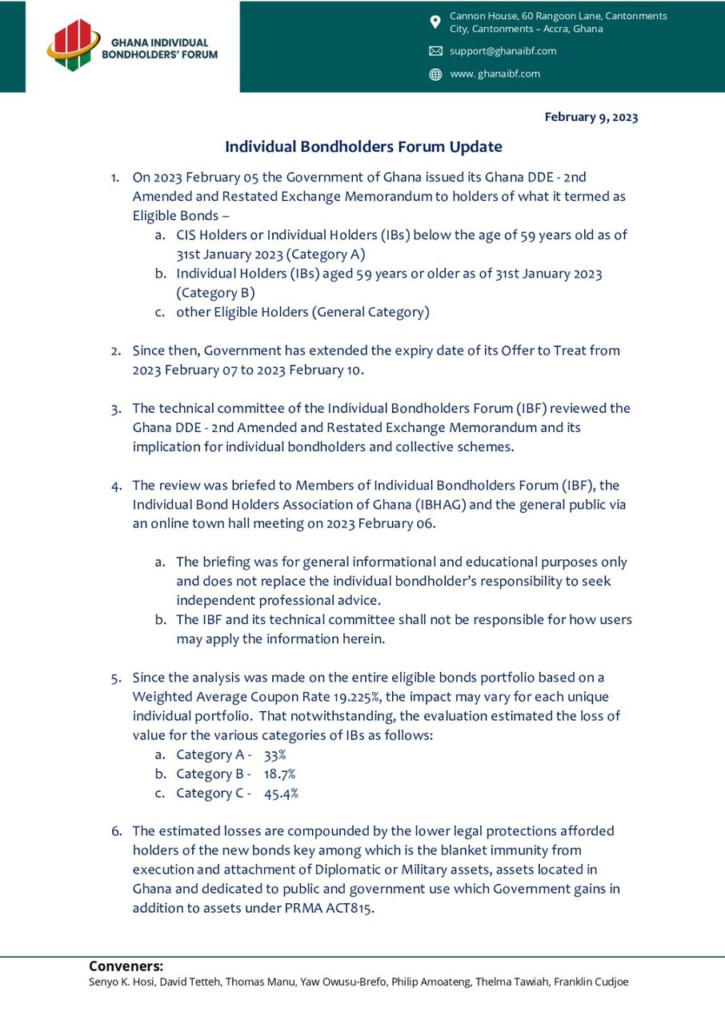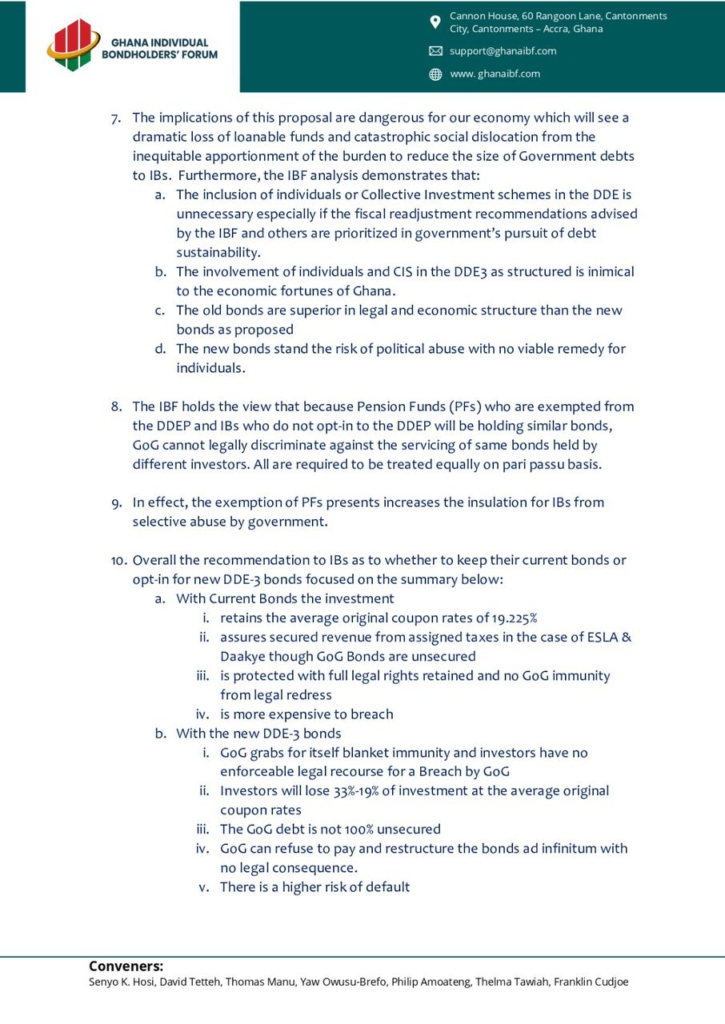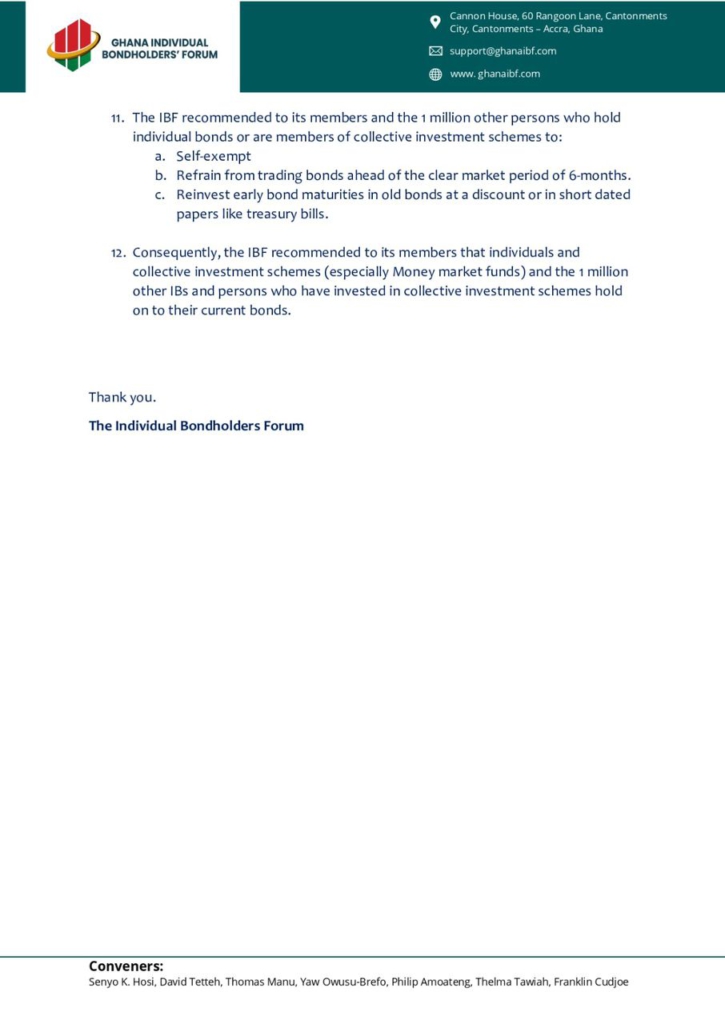The Individual Bondholders Forum (IBF) is advising its members and members of collective investment schemes to self-exempt from trading bonds in advance of their clear-market period of six months, and to reinvest early bond maturities in old bonds at a discount in short-dated papers like Treasury Bills.
In a statement, the IBF said it had reviewed the Government of Ghana’s recent Ghana Domestic Debt Exchange and its impact on individual bondholders and collective schemes.
The technical committee found that while the impact may vary depending on individual portfolios, estimated losses ranged from 18.7% to 45.4%.
“Since the analysis was made on the entire eligible bonds portfolio based on a Weighted Average Coupon Rate 19.225%, the impact may vary for each unique individual portfolio. That notwithstanding, the evaluation estimated the loss of value for the various categories of IBs as follows:
Category A – 33%
Category B – 18.7%
Category C – 45.4%
“The estimated losses are compounded by the lower legal protections afforded holders of the new bonds key among which is the blanket immunity from execution and attachment of Diplomatic or Military assets, assets located in Ghana and dedicated to public and government use which Government gains in addition to assets under PRMA ACT815,” it posited.
The IBF warned that the implications of this proposal pose a danger to the Ghanaian economy, which could experience a significant loss of loanable funds and severe social consequences due to the disproportionate allocation of the burden to reduce the size of government debts.
Furthermore, the IBF noted that the new bonds come with lower legal protections, including a blanket immunity from execution and attachment of assets dedicated to public and government use, which could negatively affect individual bondholders.
The IBF is urging individuals and collective investment schemes to hold onto their current bonds, in light of these concerns.
Find below the statement:























